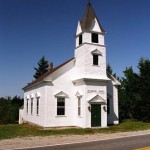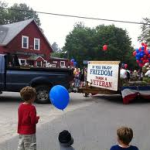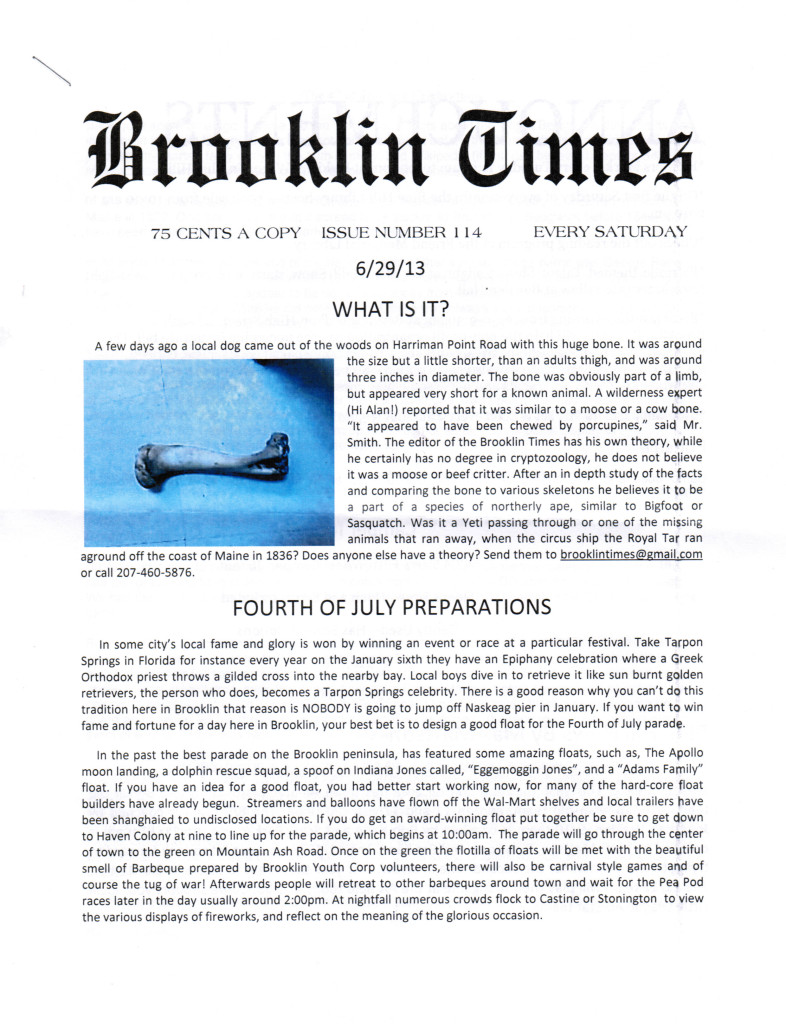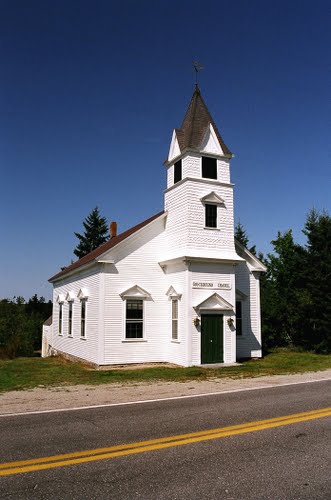After celebrating an elementary and middle school graduation in our household this June, Sheara and I and the girls hit the road for the annual family pilgrimage to the coasts of North Carolina and Maine. Two very special places, although each with its own traditions, cultures and meanings. I used the time away to finish a couple of new books, including Rod Dreher’s, The Little Way of Ruthie Leming. An intense and profoundly moving story of life and death, but mostly the former, in small town America, this time in St. Francisville, Louisiana. While it’s a moving story of Rod’s only sister, Ruthie, who tragically passed away in 2012 from cancer, it’s an account of the enduring values of family, faith and community – and human connectedness.
Unlike most books, this isn’t one that permits you to simply put it down and walk away. It’s a gripping tale of God’s goodness and the goodness of those with whom we are connected in special ways. The range of human emotions, the struggles and triumphs, although personal to Rod and his family in this book, are ones I would expect most experience, although perhaps never fully appreciate. This past Friday morning, standing in the front yard of our small cottage in North Brooklin, Maine, amidst the hugs, tears and goodbyes with family and life-long friends, I was transfixed on what it was that emoted such powerful feelings over the span of only a few days.
Latitude 44.2661° N and Longitude 68.5692° W – just a few miles as a crow flies from Wooden Boat – my girls, Ragan and Macy, are fourth generation family to enjoy this very special place. Like other small towns in America, Brooklin is a place to disconnect from the entrapments and distractions of life and reconnect with family and friends, and experience again life’s simple joys and the art of just being. And just as St. Francisville is to Rod  and his family, this is my place for experiencing that “coming home.” It’s a place where my grandfather, Albert Whitehead, pastored the First Baptist Church of Sedgwick during the tumultuous 1940s. It’s a place where my mother, Bethamie, still plays the piano for the summer hymn sings at Brooklin’s Rockbound Chapel built in 1902 – where the summer of 1985 Walter
and his family, this is my place for experiencing that “coming home.” It’s a place where my grandfather, Albert Whitehead, pastored the First Baptist Church of Sedgwick during the tumultuous 1940s. It’s a place where my mother, Bethamie, still plays the piano for the summer hymn sings at Brooklin’s Rockbound Chapel built in 1902 – where the summer of 1985 Walter  Cronkite snuck into a back corner of this quaint structure to experience a wonderful tradition that so many communities have lost. The elderly gentleman who for the last 40 years situated himself on the front pew next to the badly tuned piano to play his musical saw passed away this last year. He will be missed, his art of saw playing will be missed. It’s the home place of the great essayist, E.B. White, who passed in 1985, and his brother
Cronkite snuck into a back corner of this quaint structure to experience a wonderful tradition that so many communities have lost. The elderly gentleman who for the last 40 years situated himself on the front pew next to the badly tuned piano to play his musical saw passed away this last year. He will be missed, his art of saw playing will be missed. It’s the home place of the great essayist, E.B. White, who passed in 1985, and his brother , Joel, one of the world’s finest sailboat designers, who passed in 1996, but whose famous Bridges Point 24 design still graces the waters of Brooklin and around the world. It’s a place where for the past 20 years, my folks have eked out a living, creating and selling a beautiful array of wildlife and coastal art, subsidized in part by my father’s part-time preaching in a small church in South Blue Hill. It’s a place where my brother, as politically liberal as I am conservative, find much commonality and agreement. It’s a place where one looks to deep tradition and connectedness to help survive the dark, cold and oft deeply penetrating loneliness of Maine’s harsh winter months. And it’s so much more.
, Joel, one of the world’s finest sailboat designers, who passed in 1996, but whose famous Bridges Point 24 design still graces the waters of Brooklin and around the world. It’s a place where for the past 20 years, my folks have eked out a living, creating and selling a beautiful array of wildlife and coastal art, subsidized in part by my father’s part-time preaching in a small church in South Blue Hill. It’s a place where my brother, as politically liberal as I am conservative, find much commonality and agreement. It’s a place where one looks to deep tradition and connectedness to help survive the dark, cold and oft deeply penetrating loneliness of Maine’s harsh winter months. And it’s so much more.
This home is also a place where the local lobstermen gather at the Brooklin General Store to swap fishing stories and speculate about whether this year’s catch will yield $2.75 a pound like last year, or whether they can hope for $3.25 this year. It’s also the situs of where local families know how to enjoy each other and celebrate life and freedom that has been bestowed by others who they will never know by name. At the Brooklin Store  you won’t find many fancy foods or items like you would at a Whole Foods or Harris Teeter, where shopping is what you do. At the Brooklin Store one does not shop; rather, to do it correctly, one drops in to say hello, interact with neighbors and strangers whose path just happen to cross yours at that point in time and place, and then quietly depart with those incidental things you came in search of. Sure, you can purchase a lottery ticket or use the ATM machine over in the corner behind the lunch counter which is unreachable until after the locals finish their coffee and donuts, but the whole is a different kind of experience.
you won’t find many fancy foods or items like you would at a Whole Foods or Harris Teeter, where shopping is what you do. At the Brooklin Store one does not shop; rather, to do it correctly, one drops in to say hello, interact with neighbors and strangers whose path just happen to cross yours at that point in time and place, and then quietly depart with those incidental things you came in search of. Sure, you can purchase a lottery ticket or use the ATM machine over in the corner behind the lunch counter which is unreachable until after the locals finish their coffee and donuts, but the whole is a different kind of experience.
Dropping by the General Store this year to purchase some necessities for the week – wine, beer, donuts, and mackerel jigs (the fishing was wicked good) – I also grabbed a copy of the Brooklin Times after dropping my three quarters in the little wooden box at the register. This week, the lead story was the origin of a large bone found on Harriman Point. I especially love the part about the bone not belonging to a moose or “beef critter” but something more intriguing and mysterious like a local Bigfoot on the loose. Intrigue and mystery are important parts of small town, and a particularly powerful antidote to boredom, one of the biggest threats to the goodness of small towns. The Brooklin Times won’t win a Pulitzer, but it will certainly inform of the local happenings.
Home is not only a place of spiritual and emotional renewal, but a place of physical renewal as well. New neighbors are rare in Brooklin, but this year, Mick and Kristin Flannery, hailing from Colorado, moved in next door to breath new life into the lodge (newly incarnated the 9th Wave Lodge), situated along the edge of Eggemoggin Reach with a million dollar view. Everyone needs a good neighbor like the Flannery’s who, not wanting to disrupt traditions and trusting relationships, graciously granted to our children continued use of their privately owned pier. What’s unique to Brooklin, although not unlike the millions of other small towns in America, is the uniquely personal stories that connect each in ways unseen and sometimes unknown. It is these connections that help to weave the tangible and intangible of tradition into special places that make it community, make it home, make it uniquely human, and make it the best of who we are. I wish Mick and Kristin all the best in their new community and year-round venture (you can check them out here).
Oddly enough, after only a short time, I found myself sharing with Mick, a complete stranger, the traditions and history of this special place, the local families and their connections to the land and each other, and how it was that the dozen children, ranging in ages 12 to 20, swimming and fishing from his pier came to be in this place. Never would I have felt the same desire or compulsion to share such intimate details in the suburbs of Washington, DC. Not to diminish the wonderful community and friends we are blessed with in Rockville, Maryland, nor to glamorize the life of small town America, but the it I was seeking to put my finger on that Friday morning amidst the tears and hugs I have concluded was the power of tradition and the intimate and honest connections with those whom we share the present and past. A place to be and connect without the distractions and careless whispers of modernity.
(Note: for those interested in helping to revive those things that matter most in life and the American way, there is a great website, Front Porch Republic, that I would encourage you to visit)

